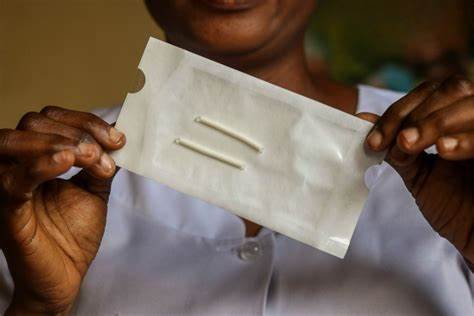…Low uptake in North despite high awareness; Lagos leads with condom use among youths
By Kolawole Omoniyi
A groundbreaking research by the Centre for Communication and Social Impact (CCSI) has identified the most effective communication strategies to drive the uptake of family planning methods in three of Nigeria’s most populous states—Kano, Kaduna and Lagos.
The study, titled Family Planning Communication Landscaping Analysis, was carried out across 30 Local Government Areas with over 5,000 respondents.
It found that while awareness of family planning methods is high, actual usage remains strikingly low in Kano and Kaduna states compared to Lagos.
Presenting the findings at a webinar, Dr. Matthew Okoh, a Research, Monitoring and Evaluation expert and medical social media influencer who led the study, said:
“Lagos State recorded the highest uptake at 41.6%, while only 27.4% of respondents in Kano and 26.8% in Kaduna currently use any form of contraceptive.”
READ ALSO: Pathfinder International, CCSI Underscore Impact Of Advocacy On Improving Maternal Health
He explained that while awareness of the benefits of family planning is widespread, uptake is significantly hampered by social norms, religious beliefs, gender dynamics, and persistent myths.
“Nearly half of the respondents pointed to lack of spousal support as a major barrier,” Dr. Okoh noted. “Others cited fear of infertility, side effects, and cultural expectations to have large families—especially in Kano and Kaduna.”
Among the contraceptive methods studied, injectables, implants, and male condoms emerged as the most commonly used.
The findings also revealed striking age-related and regional patterns. In Lagos, 84% of adolescents reported using male condoms, compared to 61.5% in Kaduna and 44.4% in Kano. Injectables were most preferred by adolescents in Kano (29.6%).
In terms of communication channels, the study found that radio and government hospitals are the most trusted platforms in Kano and Kaduna, while youths in Lagos favor social media and television in addition to government health facilities.
“In Kano and Kaduna, traditional and religious leaders play a central role in shaping community perceptions. Their influence can make or mar public health campaigns,” Dr. Okoh emphasized.
The study, supported by CCSI’s social and behavior change communication expertise, was designed to help policymakers, development partners, and healthcare professionals tailor their messaging to suit demographic preferences and cultural realities.
READ ALSO: How Health Workers Conniving With Patients To Steal Drugs At Kano Hospitals – Commissioner
With Nigeria’s fertility rate currently at 4.8 children per woman, the findings underscore the urgent need for strategic communication to address population growth and reproductive health gaps.
“This evidence is a wake-up call,” Dr. Okoh said. “If we’re serious about slowing Nigeria’s population explosion and improving maternal and child health, we must speak the language of the people using the channels they trust.”
The report concludes with a call to action for federal and state governments, as well as international partners, to adopt the study’s recommendations in designing more effective family planning campaigns.
